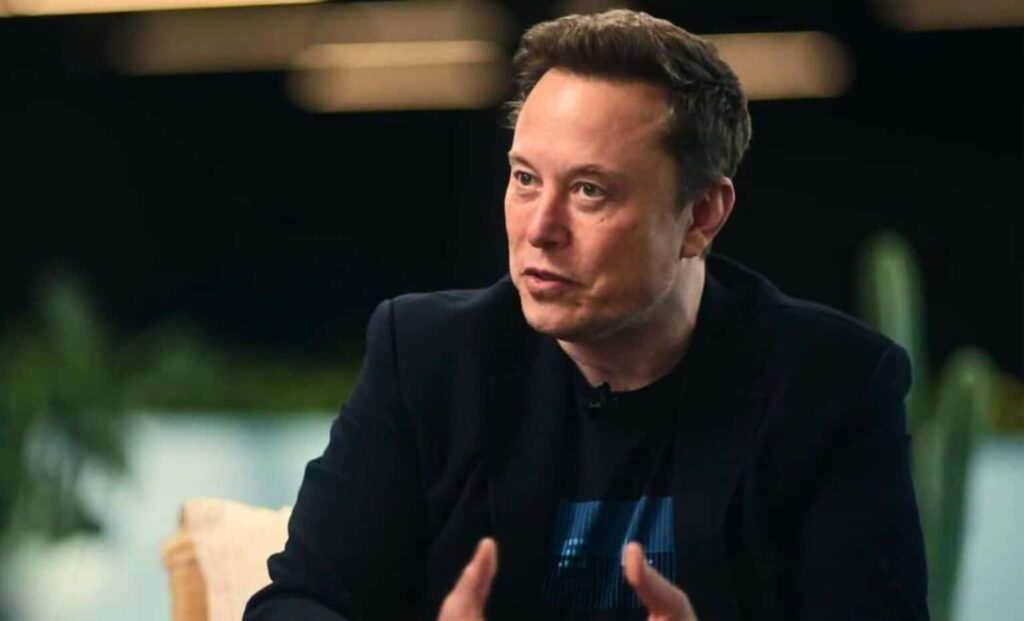Elon Musk’s “Space Ark
Elon Musk has built a reputation for dreaming big, from electric vehicles to interplanetary travel. But his latest ambition—a “space ark” to save humanity from nuclear war or other global catastrophes—raises critical questions about feasibility, priorities, and the ethics of his vision. While the idea of escaping Earth to colonize Mars is undeniably captivating, it’s worth examining whether this plan is a realistic solution or a sci-fi fantasy that distracts from pressing issues on our home planet.

The Space Ark: A Sci-Fi Solution to Earth’s Problems?
Musk’s concept of a “space ark” is rooted in the belief that Earth is becoming increasingly inhospitable due to nuclear threats, climate change, and other existential risks. His solution? A massive interstellar vessel capable of transporting thousands of people to Mars, where humanity could start anew. While this idea taps into a long-standing sci-fi trope, it glosses over the immense technical, ethical, and logistical challenges involved.
For starters, the idea of evacuating even a fraction of Earth’s population to Mars is wildly impractical. Current SpaceX plans focus on sending small groups of astronauts, not thousands of civilians. Building a vessel large enough to carry a significant number of people—let alone sustain them during the journey and upon arrival—would require breakthroughs in technology, energy, and resource management that are nowhere near realization.
Moreover, the notion of Mars as a viable refuge is deeply flawed. The planet is a barren, radiation-soaked wasteland with no breathable air, no liquid water, and no natural food sources. Musk’s vision of terraforming Mars—altering its atmosphere to make it Earth-like—is a project that would take centuries, if not millennia, assuming it’s even possible. In the meantime, settlers would face extreme isolation, psychological stress, and the constant threat of death from equipment failure or environmental hazards.
A Distraction from Earth’s Immediate Crises?
Critics argue that Musk’s focus on Mars colonization detracts from solving the very problems that make his “space ark” seem necessary. Climate change, nuclear proliferation, and resource depletion are urgent, Earth-bound issues that require global cooperation and investment. Pouring resources into interplanetary escape plans risks diverting attention and funding away from initiatives that could mitigate these threats.
For example, the billions of dollars spent on SpaceX’s Starship program could instead be used to develop renewable energy technologies, strengthen global food systems, or improve disaster preparedness. While Musk has made significant contributions to clean energy through Tesla and SolarCity, his Mars ambitions seem to prioritize a speculative future over the pressing needs of the present.
The Ethics of Survival: Who Gets a Seat on the Ark?
Even if Musk’s space ark were feasible, it raises troubling ethical questions. Who would decide which humans get to board the ark? Would it be the wealthiest, the most technologically skilled, or those with political connections? The idea of a select few escaping Earth while the majority are left behind to face catastrophe is a dystopian scenario that undermines the principles of equity and justice.
This selective survival strategy also ignores the interconnectedness of humanity. Preserving human civilization isn’t just about saving a handful of individuals; it’s about safeguarding the diversity of cultures, ecosystems, and knowledge that define our species. A Mars colony, no matter how advanced, would be a pale shadow of Earth’s richness and complexity.
Technological Optimism vs. Reality
Musk’s confidence in overcoming the challenges of Mars colonization reflects his trademark technological optimism. He believes that human ingenuity and innovation will eventually solve problems like radiation shielding, oxygen production, and food sustainability. While this optimism has driven remarkable achievements, it also risks underestimating the sheer scale of the obstacles involved.
For instance, generating enough oxygen and food to sustain a Mars colony would require entirely self-sufficient ecosystems, something we’ve yet to achieve even in controlled environments on Earth. Similarly, protecting colonists from Mars’ harsh radiation would necessitate advanced shielding technologies that are still in their infancy. These challenges aren’t insurmountable, but they highlight the gap between Musk’s vision and current capabilities.
A Necessary Insurance Policy or a Pipe Dream?
Proponents of Musk’s plan argue that a Mars colony serves as a necessary insurance policy for humanity. They point to the countless species that have gone extinct on Earth and argue that becoming a multi-planetary species is the only way to ensure our long-term survival. While this argument has merit, it assumes that Mars colonization is a realistic and achievable goal within the timeframe of Earth’s escalating crises.
The reality is that even under the most optimistic projections, a self-sustaining Mars colony is decades away. By then, the window to address Earth’s problems may have already closed. Rather than pinning our hopes on an interstellar escape, it might be more prudent to focus on preserving and repairing the planet we already have.
Conclusion: A Vision Worth Pursuing?
Elon Musk’s space ark is undeniably ambitious, and it captures the imagination in a way that few other ideas can. However, it also raises serious questions about feasibility, priorities, and ethics. While the dream of colonizing Mars is a powerful symbol of human resilience and innovation, it should not come at the expense of addressing the urgent challenges facing Earth.
Musk’s vision serves as a reminder of the fragility of our planet and the need for bold thinking. But rather than looking to the stars for salvation, perhaps we should focus on building a sustainable and equitable future here on Earth—one that doesn’t require an escape plan. After all, if we can’t solve the problems we’ve created on our own planet, what hope do we have of thriving on another?
thedailycourierng news
Reference
If Nuclear War Breaks Out, Here’s How Elon Musk Plans to Save Humanity
